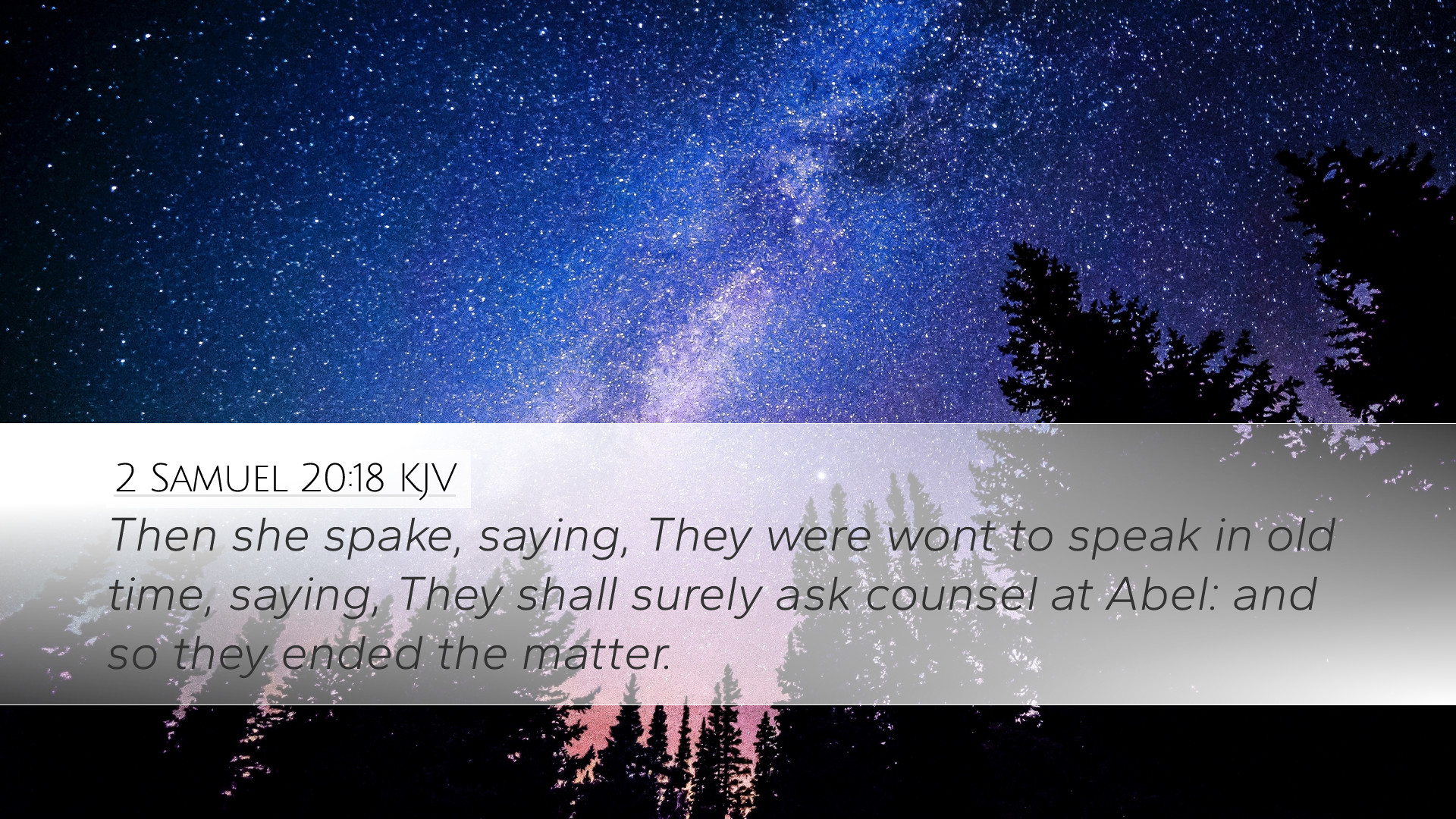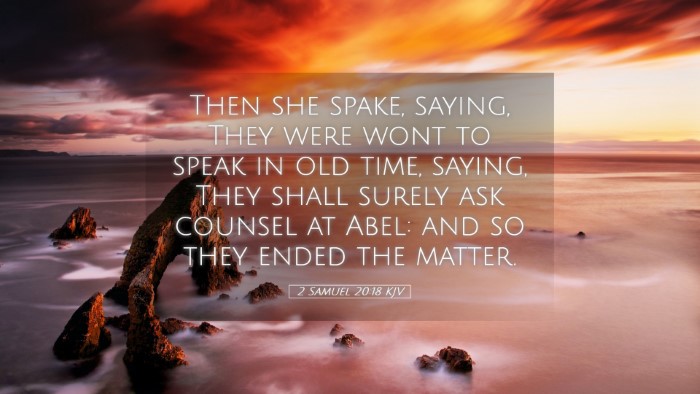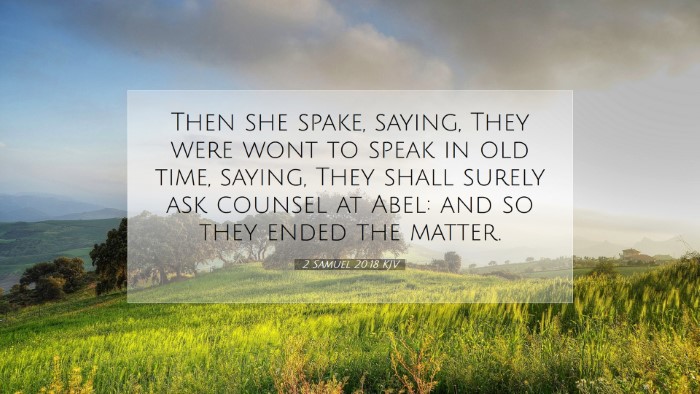Commentary on 2 Samuel 20:18
This verse comes in the context of a significant event in the life of David as king of Israel. In 2 Samuel 20, the narrative unfolds around Sheba, a rebel against David's authority.
Text of 2 Samuel 20:18
"Then she spoke up, saying: 'In the earlier days they used to say, "Get your answer at Abel," and that settled it.'"
Historical Context
This verse is spoken by a wise woman from Abel of Beth Maacah who speaks to Joab, the commander of David's army. It reflects a time when the nation of Israel was experiencing turmoil both internally and externally. Joab is pursuing Sheba, and this woman intervenes, demonstrating the significant role women played in the society of ancient Israel.
Insights from Commentaries
Matthew Henry's Commentary
Matthew Henry observes that this woman speaks out of wisdom, recalling a saying established among the people of Israel. Her reference to "getting answers at Abel" signifies the place's reputation for settling disputes. It illustrates the contrast between the peaceful ways of Abel and the current disorder brought by Sheba's rebellion.
Henry highlights the wisdom of taking initiative in times of crisis, suggesting that this woman represents those who seek peace and resolution rather than conflict. Her statement also serves as a reminder of the communal identity of Israel—their tradition of dialogue and resolution through established means.
Albert Barnes' Notes
Barnes emphasizes the phrase "get your answer at Abel," interpreting it as a proverbial saying that implies wisdom and insight were found in this city. He notes that this woman, by invoking this saying, seeks to appeal to the established norms of their society. Her reference encompasses a historical precedent for unity and justice.
Moreover, Barnes indicates that the woman's intervention exemplifies the role of influential voices in a community. In her counsel, the peace and stability of Abel are placed over the tumultuous events surrounding them, promoting the idea that true leadership listens to reason from wise constituents.
Adam Clarke's Commentary
Adam Clarke further expounds on the characteristics of the City of Abel, suggesting it was a location revered for its wisdom, especially in resolving conflicts. Clarke points out that the woman's words are a call to remember their heritage and to appeal to the authority that comes from their traditions.
Clarke also discusses the transition from the rebellious act of Sheba to the wise counsel of this woman who seeks to restore harmony, illustrating the necessity for wisdom to guide governance and rectify civil unrest. The acknowledgment of former peaceful practices illustrates the contrast in their current predicament and serves as a call for reconciliation.
Theological Reflections
The discourse brought forth by the woman from Abel reveals important theological principles regarding community, wisdom, and the pursuit of peace. It illustrates how God's people ought to uphold values of wisdom and reconciliation amidst conflict. This reflects the larger biblical narrative of God seeking to restore His people to a state of peace and right relationship.
- Community Wisdom: The woman's reference to established sayings serves to remind the audience of the collective wisdom of their society, encouraging a return to valuing the insights of elders and leaders.
- Conflict Resolution: The approach taken by the woman exemplifies how individuals can mediate disputes, advocating for a peaceful solution rather than engaging in rebellion or violence.
- The Role of Women: Her pivotal role in the narrative signifies the importance of women in biblical history, as wise and influential figures who can bring about change.
Conclusion
The commentary on 2 Samuel 20:18 invites pastors, students, theologians, and scholars to deeply consider the implications of wisdom, community identity, and conflict resolution in the life of the church today. The lessons from Abel regarding the quest for peace remain relevant and timely, echoing the call to seek answers in wise counsel rather than allowing strife to prevail. This passage is not merely a historical account, but a vital reminder of God's design for harmony among His people.


